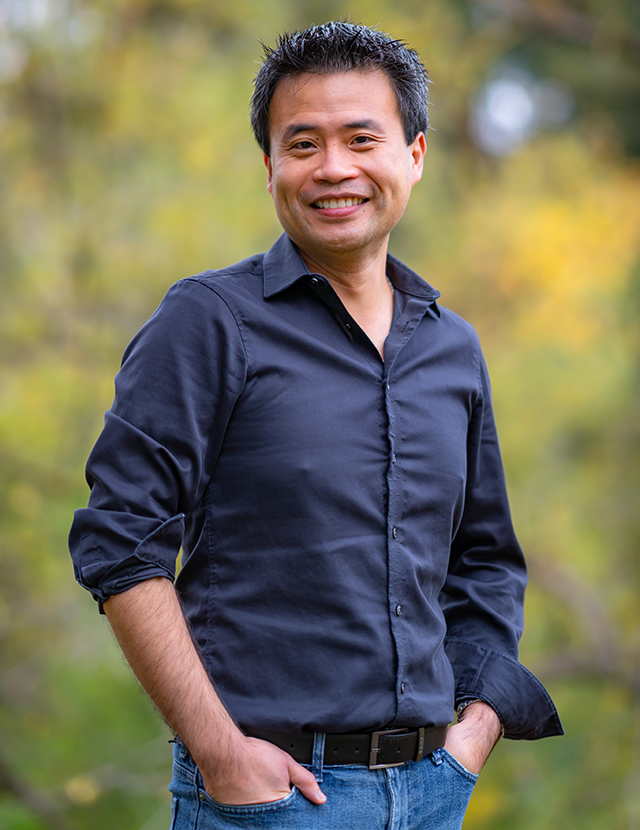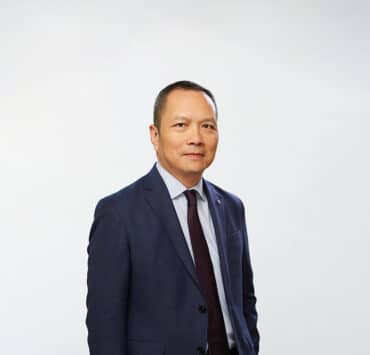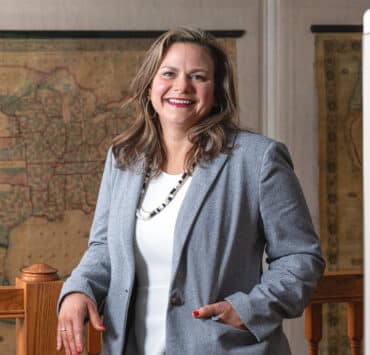|
Getting your Trinity Audio player ready... |
When Bruce Wu was pursuing his PhD in engineering at MIT, he recognized within him a passion for learning new things by interacting with people and providing counsel. So, he corrected course.
He went on to earn a JD at Georgetown, working at a law firm during the day and attending classes at night. Once he went in-house, first at HP and then at Illumina as a director of global intellectual property, he witnessed the strength of a well-crafted IP portfolio.
“That’s when I realized how powerful an IP portfolio can be, when we deployed a science-driven IP strategy by collaborating with scientists and engineers,” says Wu, who is now chief legal officer and corporate secretary at Deepcell.

Wu joined Deepcell in May 2023, just as the Menlo Park, California-based start-up was launching its first commercial product, an artificial-intelligence-powered platform to unlock insights from cell morphology. He came to Deepcell to build the company’s legal function and IP portfolio, a role he’s well acquainted with.
Over the course of his career, Wu has held many legal positions at both international public companies and start-ups, intentionally seeking companies that combine multiple technologies into a single product or line of products. Searching for synergy among various technologies and then building a legal strategy that captures the different interplays excites his inner engineer and lawyer. Wu’s passion has always been building IP-focused legal strategies for technology companies that create disruptive sciences.
An IP portfolio is often a foundational pillar on which a life sciences start-up is built, Wu says. Before launching a commercial product, start-ups may not realize their most valuable assets are in the form of IP. Those that miss the opportunity to harness the power of their IP may be at a competitive disadvantage.
“Competitors might create roadblocks as the company is trying to become known or to push for [its first product launch]. That’s why intellectual property allows a company to put their first stake in the ground,” Wu explains.
“That’s when I realized how powerful an IP portfolio can be, when we deployed a science-driven IP strategy by collaborating with scientists and engineers.”
Bruce Wu
Wu likes to start the process of building a company’s IP portfolio by capturing the innovations of each of the multiple disciplines individually, as well as the synergistic aspects of these disciplines holistically. He likens building a holistic IP strategy to the construction of a medieval castle.
“Castles are protected by walls, spikes, a moat, and other barriers,” Wu says. “You wouldn’t want to protect your castle with only a fence. The most practical way to protect a company’s IP is to build a weave of protections. To create such multidimensional protection, we first need to understand how the different assets interrelate.”
In addition to his experience building IP portfolios, Wu is an expert at building legal teams. “This is one reason I joined Deepcell,” he says. His strategy for building a legal team, similar to his approach to building an IP portfolio, is to align the legal function with the company’s commercial activities.
The legal department is uniquely positioned to act both as a guardrail for the company and as a partner to the other teams to support the company’s activities. To accomplish this, legal has to maintain a certain level of agility, proactively anticipating issues before they occur and recalibrating the strategy once an issue surfaces.
One of the most exciting aspects of working in a start-up environment, according to Wu, is that it provides a training ground for being vulnerable, intellectually agile, and resilient (his North Star values) at warp speed—which is not as common in a larger company. “With the right mindset, mistakes and challenges can become opportunities to learn and improve,” he says.

He believes resilience helps frame that mindset. “What happens when you make a mistake? Do you keep making it only for the sake of perseverance, or do you pause, reorient yourself based on your values, and correct course?” he asks.
It took a bit of a career journey to get Wu to where he is today, but the one constant has been his passion for building, whether it’s the physical structures he used to build in a lab or the IP portfolios and legal teams he now builds as a professional. “I used to be very cautious. While I was intellectually curious and liked to build things, I was wary of making mistakes,” he says. The antidote turned out to be complementing “disciplined intellectual curiosity” with the willingness to be vulnerable, intellectually agile, and resilient.
Wu encourages new lawyers to look for their North Star values in their career. Try things they are curious about and treat each experience as a learning opportunity, but never lose sight of what they are passionate about. “When an opportunity intrigues us, we should be willing to be vulnerable, giving it a try by showing up with our whole selves,” Wu advises. And if it does not work out, “reorient based on your values and correct course.”
Greenberg Traurig’s life sciences attorneys offer multidisciplinary and practical skills, aiding clients to advance their products from the lab to the marketplace. Start-ups, large multinational public companies, research organizations, and not-for-profit care providers, as well as investors, igniter studios, incubators, accelerators, venture capital funds, and public agencies, look to us to guide them from discovery through commercialization and product marketing. Our team is positioned to provide innovative and informed legal advice with the combined experience of the firm’s health care, intellectual property, governmental affairs, regulatory, corporate, real estate, litigation, products liability, and employment professionals.

